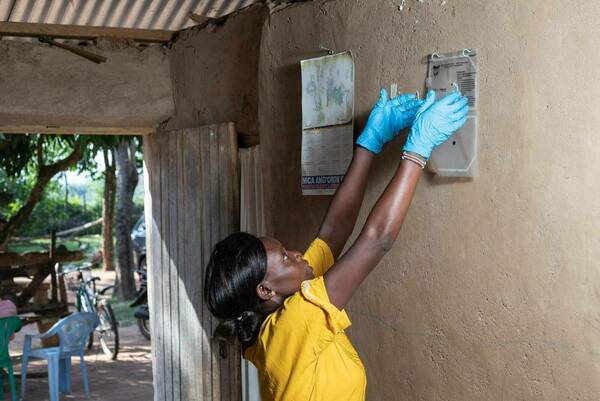Philosopher, Buddhism scholar Jay Garfield to deliver Justice and Asia lecture

Philosopher and Buddhism scholar Jay Garfield of Smith College will deliver the third annual Justice and Asia Distinguished Lecture for the Liu Institute for Asia and Asian Studies at the University of Notre Dame on Thursday, April 13, 2023.
The free event is cosponsored by Notre Dame’s Department of Philosophy. Mike Zhao, an assistant professor of philosophy and a Liu Institute faculty fellow, will moderate.
Garfield’s lecture, “Buddhism and Nonviolence in the Contemporary World,” will be held at 4 p.m. in 1030 Jenkins Nanovic Halls at Notre Dame. A reception will follow.
“Professor Garfield is a perfect fit for our Justice and Asia Distinguished Lecture,” said Michel Hockx, director of the Liu Institute. “His work on Asian philosophical traditions brings diversity to our thinking about questions that are core to Notre Dame’s values, especially the question of justice. His prolific writings epitomize what it means to do research from a global perspective.”

For the Justice and Asia keynote, Garfield will present a Buddhist analysis of nonviolence in a way that is relevant to contemporary life. He will first explain how violence manifests in the contemporary world. He will then present a Buddhist analysis of violence and its causes. Finally, he will examine how a Buddhist ethical framework determines our responsibilities as agents in the context of that violence and a path to its eradication.
Garfield, the Doris Silbert Professor in the Humanities and professor of philosophy, logic and Buddhist studies, chairs the Department of Philosophy and directs the Buddhist Studies Program and Tibetan Studies in India Program at Smith College. He is a visiting professor of Buddhist philosophy at Harvard Divinity School, professor of philosophy at Melbourne University, and adjunct professor of philosophy at the Central Institute of Higher Tibetan Studies. Academicinfluence.com has identified him as one of the 50 most influential philosophers in the world over the past decade.
His research addresses topics in the foundations of cognitive science and the philosophy of mind, metaphysics, the history of modern Indian philosophy, and topics in ethics, epistemology and the philosophy of logic, and topics in Buddhist philosophy, particularly Indo-Tibetan Madhyamaka and Yogācāra. He is the author of more than 30 books, including his most recent titles, “Losing Ourselves: Learning to Live without a Self” and “Knowing Illusion: Bringing a Tibetan Debate into Contemporary Discourse.” and “Buddhist Ethics: A Philosophical Exploration.”
A proponent of greater diversity in philosophy studies, Garfield is the co-author of the 2016 New York Times opinion piece “If Philosophy Won’t Diversify, Let’s Call It What It Really Is” that calls for a multicultural approach to philosophy in academia.
The Liu Institute’s Justice and Asia Distinguished Lecture invites top scholars who examine the theme of justice in relation to Asia and with awareness of Asian cultures and traditions. The series is part of the Liu Institute’s organizing theme of “Justice and Asia” that examines and supports thematic work from a range of perspectives, projects, disciplines, and collaborations.
The Liu Institute for Asia and Asian Studies, part of the Keough School of Global Affairs, promotes awareness, understanding and knowledge of Asia through administering a supplementary major and minor in Asian studies, supporting student and faculty scholarship, organizing public events, and facilitating interaction and exchanges with partners in Asia. The Institute was established by a gift from the RM Liu Foundation that supports the philanthropic activities of Robert and Mimi Liu and their children, Emily and Justin, both Notre Dame graduates.
Originally published by at asia.nd.edu on January 13, 2023.
Latest Research
- NSF Cyber SMART’s fall meeting shapes fifth year of project, legacy and future plans, and adds new memberThe U.S. National Science Foundation (NSF) Cyber SMART center gathered for its fall meeting on the University of Notre Dame campus this September. The meeting served as a checkpoint with progress reports and new projects from research leads and students…
- Slavic and Eurasian studies professor wins Humboldt fellowship to research how Russia’s religious past shapes its presentWhen Russia invaded Ukraine on Feb. 24, 2022, Sean Griffin realized his second book needed a new title. Griffin, an associate professor in the University of Notre Dame’s Department of…
- Notre Dame’s R.I.S.E. AI Conference builds interdisciplinary collaboration to inform human-centered artificial intelligenceAs artificial intelligence (AI) transforms nearly every sector of society — from healthcare and education to governance and global development — a critical question emerges: How can we conscientiously design and deploy these powerful technologies to positively impact society? This…
- University of Notre Dame joins the Global Coalition of Ukrainian StudiesThe University of Notre Dame has joined the Global Coalition of Ukrainian Studies after signing a Memorandum of Cooperation (MOC), formalized on September 24, 2025, at the Ukrainian Institute of America in New York City. Notre Dame joined four other American…
- The University of Notre Dame’s Mendoza College of Business and Industry Labs team up to inspire national security manufacturing competitiveness in the regionThe South Bend - Elkhart Region is full of manufacturing companies that are poised to grow, and Executive Master of Business Administration (EMBA) and Master of Business Administration (MBA) students at the University of Notre Dame are finding innovative ways to contribute to that growth. Earlier…
- Notre Dame research informs WHO conditional recommendation for spatial repellents in malaria vector controlThe World Health Organization (WHO) recently announced a “conditional recommendation” for spatial emanators, also known as “spatial repellents,” in the fight against malaria. This key determination was informed by spatial repellent studies that included the Advancing Evidence for the Global Implementation of Spatial Repellents (AEGIS) Project in Kenya, led by the University of Notre Dame and funded by Unitaid. The findings from this particular study were recently published in The Lancet.












